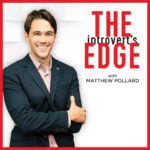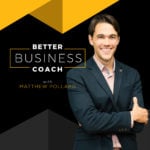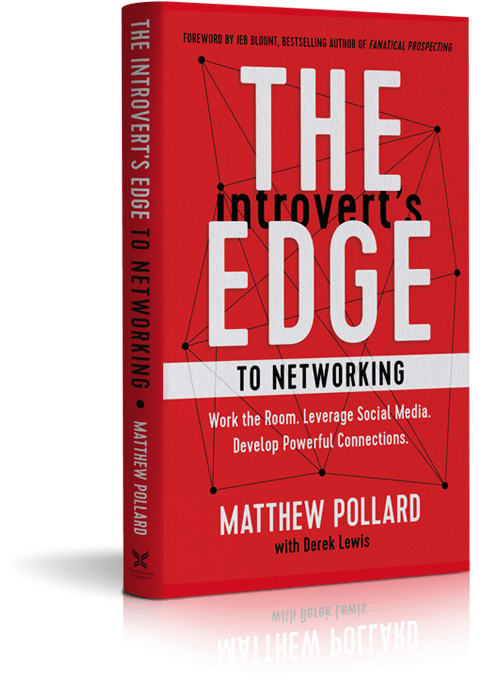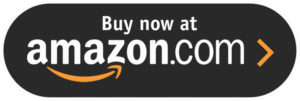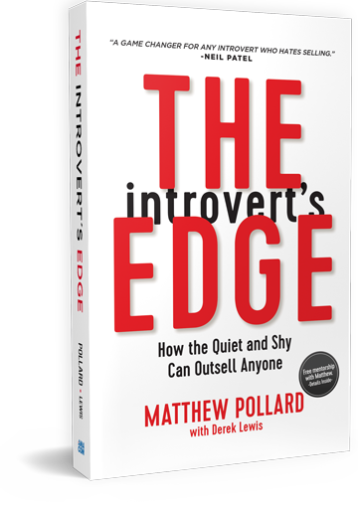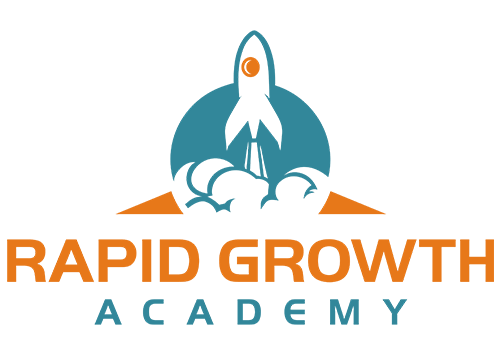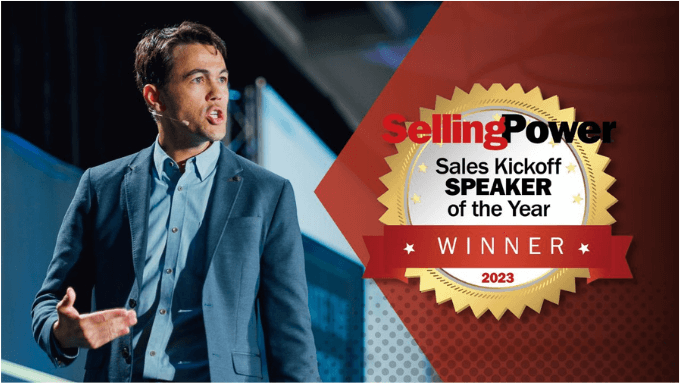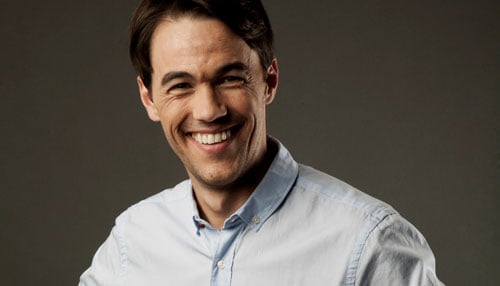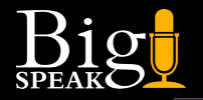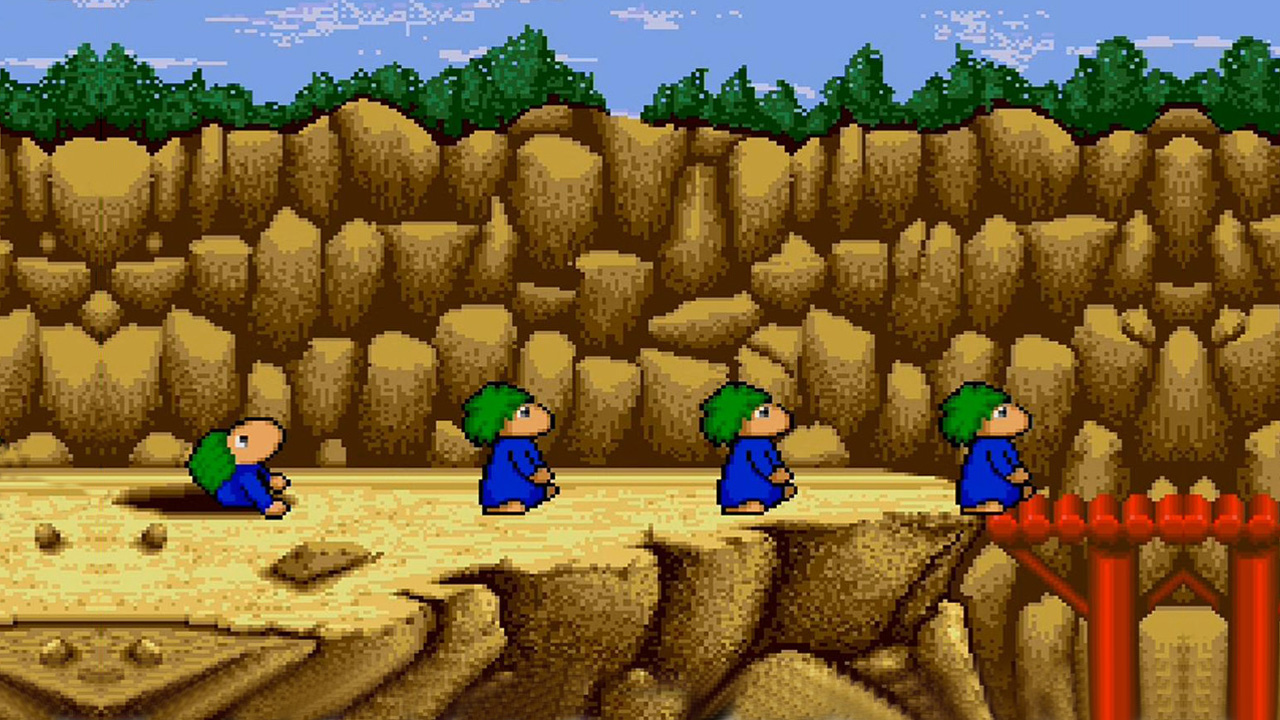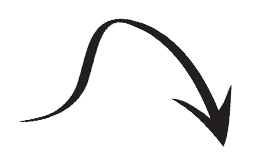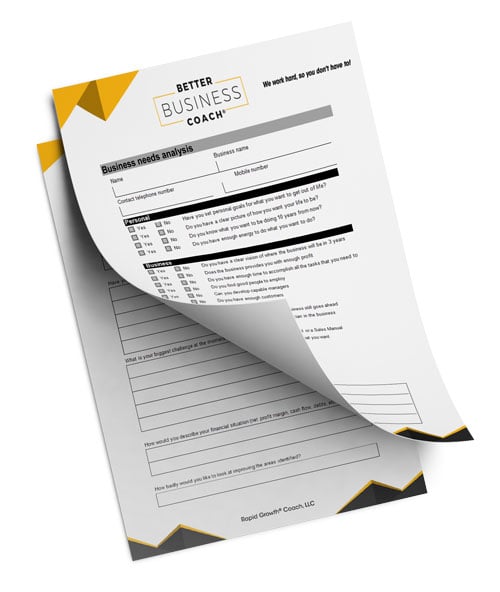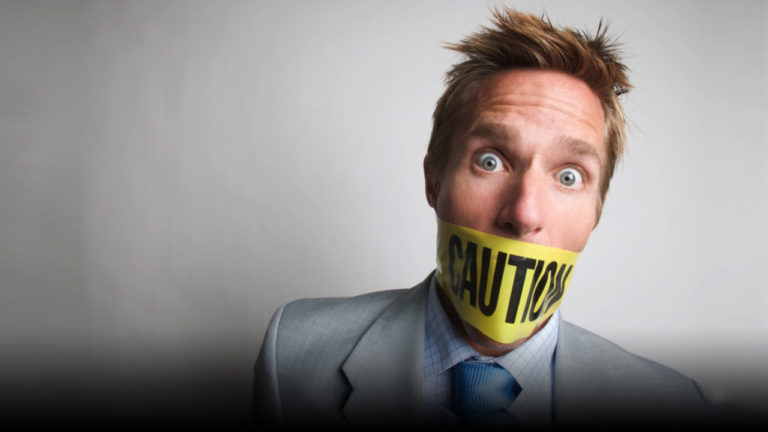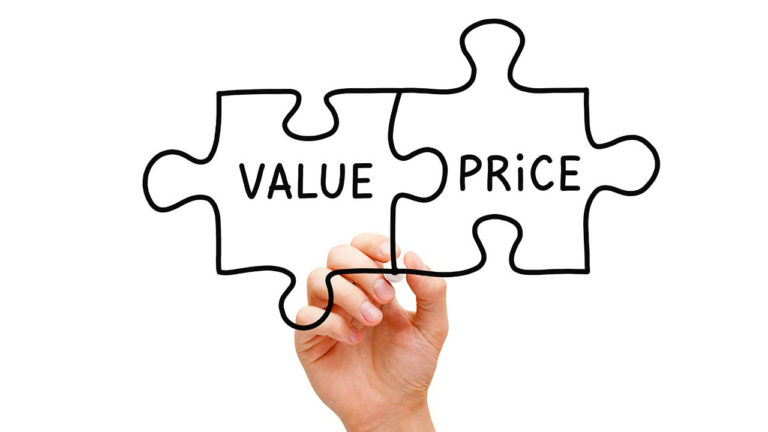Better Business Coach Transcript
This is Business Coach, session number 15.
Matt: Hello everyone and welcome back to Better Business Coach. My name is Matthew Pollard, and as always I am your rapid growth guy. Today is a follow on session from session 14, where we spoke about pricing, and we hinted at the importance of personal branding and the importance of packaging. And today I have the benefit of sharing extra content on that with you, with Dev Singh – who is a world renowned business strategist, executive coach and entrepreneur.
He’s worked with several hundred executives, entrepreneurs and professionals on building and optimising world class brands. And just like me, he’s had the opportunity because of this, to work in diverse markets like Melbourne, Sydney, Perth, London, Stockholm, Toronto, and Mumbai. He’s also worked with diverse clients, ranging in industries from social enterprise, technology startups, non-profits, charities, educational institutes, senior executive teams, and major global corporations. He is also a master practitioner in NLP, so he’s going to speaking a lot of the same language and a lot of the same things that I’ve been sharing with you. So I’m so, so happy to share with you what he has to say. Dev, welcome to the show.
Dev: Thank you Matthew, great to be here.
Matt: It’s great to have you, and look you’ve got a wonderful show yourself – so it is an honor for me to have you on.
Dev: Thanks, I’m looking forward to have you on the show as well. It’s on hiatus at the moment, but season 1 is up and kicking, and yeah I encourage all your listeners to check it out as well.
Matt: Well from what I’ve heard, it’s kicking goals. And a lot of it is to do with the fact that you’re speaking a very similar language that got us into the top of New & Noteworthy in iTunes.
Dev: Yeah look, I’ve listened to a couple of your episodes now since you told me about it. And I’ve checked it out, and it’s amazing. What you’re doing with your podcast is truly unique I have to say. ‘Cause there’s a big trend in podcasts at the moment to do interviews and have conversations, which personally I love that. But what you’re doing is really putting yourself on the line to share really, really sincere and direct education. Which is rare to find in a lot of podcasts, and it’s really useful stuff. Like, I’ve already learnt a lot from listening to the 2 episodes I heard.
Matt: Well I appreciate that, as you know putting together a podcast, it takes a lot of energy. And funnily enough, interviews – actually I find much, much easier, even though they offer a lot more content. Because in an interview, they’re used to talking about certain things, and I’ve just got to ask great questions. But when you’ve gotta speak for 20 minutes straight out about a certain topic, it really does take a lot of energy.
Dev: I totally agree with you mate. That was my logic for doing a podcast in an interview format. Well there were 2 things, one was conversational – because I like talking to people. But the other is that I came at it with a hacker mindset. And I said, let me figure out all of the quickest and shortest routes to getting the most value to people. You happen to be exceptional at doing this anyway. For me, that was the way that I went by it, and I think that’s very relevant to what we’re going to be talking about later in the show as well.
Matt: Yeah definitely, and look, I can tell you – it wasn’t my first go at it. I did a practice with a friend of mine Daniele Lima who’s almost a best-selling author now in Australia. And we have a Dan and Matt podcast, which actually shares some great messages on marketing and strategy. However, for me it was a 1 a month podcast, just so I could work out all the finer points. Like I’m sure you have about – just how hard it is, but all the little secrets you need to know to make an iTunes New & Noteworthy podcast.
Dev: Absolutely.
Matt: Now let’s get right into the content. I know that you are a personal and organisational brand specialist. And you focus primarily on differentiation as well, which is great. Because what we’ve been talking about with the listeners is how to separate yourself as a business coach. And we talked about, in session 2 and 3 – about how to do an elevator pitch to get people interested. And I even notice in one of your blog posts, it’s written like an elevator script of, “We help you create sales letters in 60 minutes, even if you’ve never done one before.” Which is the exact terminology that we were teaching in session 2. So a lot of the stuff that you share is gonna be great content for the coach. But what specific things or what ways of differentiating would you suggest are important for a business coach to really know and embrace into their business.
Differentiating Strategies
Dev: Look, as you mentioned in my bio, I’ve worked with professionals and entrepreneurs all around the world, and hundreds of them. And a lot of them have been coaches and business coaches as well. I wouldn’t say most of them, but a lot of them. The reason I say that is to emphasise the point that there are certain belief systems and approaches and attitudes towards differentiation, towards branding, towards marketing that transcend cultures and industries and sectors. No matter where you go, there are certain things that just get looked at in the same way. And one of those things I’ve found is that branding and marketing are not differentiated, even between themselves enough. And I know that’s not exactly the question that you were asking. But I always find that it’s really important when you are thinking about your differentiation, to understand where differentiation sits in branding and where it sits in marketing.
I was meeting with someone just the other day to give them some advice on their – not just the differentiation really, but it was– They’re approach to packaging, their approach to their brand, their approach to working with clients. And we got talking about this idea of how – basically she asked me this question. She said, “How do I set myself up to be an expert?” And I said, “That’s really interesting that you say that.” And I think it’s a bit of a misnomer, because a lot of people think that when they set themselves up to be an expert, they build a fancy website, the put up a bunch of testimonials, the dive into a very superfluous kind of level of content marketing. They do all of these things that are very check box, and they feel that, “Okay now I’ve set myself up, so I am differentiated as an expert.”
The problem with doing that approach is that it can be quite simplistic. When you approach that without really understanding the difference between branding and marketing, is that you are coming at it from almost this attitude of – I’m going to be different, just like everyone else. And when you’re different, just like everyone else – you’re not actually differentiating yourself based on anything that is actually integrated and congruent with the differentiation in terms of the value that you’re offering. And I think this is where most people go wrong. They try and differentiate themselves with a bunch of tactics, with a bunch of tricks that aren’t necessary and become very fundamental later down the line. But your first approach to differentiation should be absolute, 100% clarity on what is the unique value that you’re actually bringing to your clients and customers.
Particularly not just in terms of the products or services, but also in the experience that your customers and clients are gonna have of working with you. That to me is the biggest differentiation, and that to me in fact is the definition of branding. The way that I define branding or brand exactly is “the experience that your customers and clients have of their relationship with you.”
Matt: That’s really well put, and it’s funny that you say that. I talked about, significantly in the last podcast, unified message and how important having a unified message was. And I’m sure you have one as well, and I’m looking forward to hearing it in a second. But for me, at a young age, I used to call myself a “sales niche marketing and differentiation specialist.” And everybody went, “Oh well, that’s nice.” But it didn’t really convey a unified message about what I delivered, and none of those concepts people could really identify with or understand. As soon as I started calling myself a “rapid growth coach,” and I have a rapid growth program that helps people obtain rapid growth – everyone got really excited about that, because people want rapid growth. The other things are just the features of what I did.
Dev: Yeah, I – look, I agree with you as well. I also think there’s a fine line between that where I could potentially not agree with you Matthew. And I don’t say that to necessarily challenge the specific “rapid growth” coach terminology that you work with. But that some people fall into the trap of, again, being very simplistic about it. And they feel that, “If I just have the right catch phrase, if I just have the right slogan.” Or even so much as, “If I just have the right colours in my logo, I can start getting out there and getting better business. The issue that I have with that, the concern that I have for coaches that I work with – is that it can be a very, very easy procrastination mechanism. It can be very, very easy to fall into that trap where– I’m of the mindset that the best differentiation and the best marketing that you can possibly do, is doing really good work. And having that proof of concept, especially when you’re starting out as a coach, but really at any level as a coach.
So I’ve worked with a lot of people who have tried to come up with very interesting names and interesting titles. Sometimes they hit and sometimes they miss. When they miss, the reason they miss is because they’re trying to be clever. They’re not trying to be useful. When you call yourself “the rapid growth coach,” it makes sense, it’s very practical, it is what it it is, and it– The most important thing is that it’s very congruent with your history and your experience, in the fact that you’ve delivered a lot of rapid growth for your clients. But some of the names that people come up with for themselves – it’s, it can be a bit of a joke to be honest. They can sit there for hours.
Matt: I can agree with you. Look, the bottom line is that a name is only one thing. And quite frequently as part of what I do, I’ll look back at what they’ve done in the past. And you have to create a unified message with what they’ve done, ’cause you’ve gotta back it up. And a lot of the times when you talk about packaging – for instance, if I called myself “the rapid growth coach,” and then I said, “So what I do is I sit down with you for 2 hours every single week and talk to you about things that you can do to make your business better.” It wouldn’t send that unified message. So it’s only the start. It’s – the core message that you then filter in to everything else that you do.
So no, I don’t take it as you disagreeing with me at all. I feel that what you’re saying, and what I am saying is exactly the same. You’ve got to come up with something that’s going to differentiate you, and make a very simplistic message out to the world about what you deliver. But it’s gotta be connected to things that you can actually deliver and past experience that you’ve actually delivered to others.
Dev: Absolutely, absolutely. I also think that just like when you build a great website, it doesn’t necessarily mean that people will automatically flock to it. It’s the same with also, coming up with great terminology and brand assets. I don’t call them brands, ’cause a lot of people confuse branding with having a logo, and having comprehensive stationery. I remember once I did this workshop – many years ago actually. And I walked into this little room of executives, and they said, “We want to learn about branding.” And I said, “Yep, okay I’m here to teach you about branding.
So I started up and I said, “Well, before we begin, any questions? Before we even dive into the content.” And I like to do, ’cause it stimulates engagement and gets people talking and really feeling like everything is customised to them, which I try to do as I go along the presentation. And they said, “Yeah–” One of them, literally said, “I’m trying to decide whether my logo should be red or green.” And I said– Like, initially it was fine, I didn’t scoff at it, and I just said, “Okay, that’s fair enough.” And I tried explaining to them that, “Look, that’s a part of your brand asset, it’s part of branding. What we’re gonna do, is we’re gonna talk about the principles of branding. The fact that it’s strategic development, articulation of your identity, your personality and values. And then part of that identity’s demonstrated through your logo and your colours, and all that’s relevant. But we’ll get to that, and then we can talk about your specific case.”
And they started getting restless. I mean, he started getting restless as a person. He started saying, “No, no I just – look I just want to know what colour it should be? ‘Cause I really feel like if I do this, I’m gonna make a million dollars next year.” He didn’t say this literally, I’m exaggerating now. But his attitude was pretty much that, “Once I get the colours right, all of a sudden, I’m going to just explode my business results.”
And the issue with that, it’s very common sense between you and me. But I’ve come to realise that without sounding condescending or patronising – the fact is in that a lot of people, it’s not common sense for them. They really do get caught up in what kind of hype they need to project. I find when people create their brand assets, they feel that something as simple as having the right colours in their logo is going to explode their business to making a million dollars more in the next financial year. The issue with that is, is that you can build even the most comprehensive, relevant, sophisticated, unified message – if you’re not projecting that message out to the right audience, at the right time as well. Then it’s just not gonna work for you.
Because what works for you is not actually your brand asset, it’s your branding. And like I explained at the start, my definition of branding for that very reason is that, “it’s the experience that your customers and clients have of their relationship with you.” If you just build a bunch of brand assets, including your unified message. And you leave it on the table and you don’t have any customers or clients to experience the relationship that they have working with you because of those brand assets – then you essentially don’t have a business. And therefore you don’t have a brand.
Matt: Well look, that makes perfect sense, and it really is – it’s the artifacts of the business have to be aligned with the core message, and that makes the core message make sense. If it’s in it’s own isolation, it’s not going to make your business successful. And without making a very overly simplistic quote, it’s a big matter. I mean, this focus on what colour of the logos is – you know what you know, you know what you don’t know – but you don’t know what you don’t know. And this person just assumed that the colours of the logo were the most important thing for the success of a business, just like so many people think, “Create a podcast and all of sudden, I’m gonna just rapidly grow into success.
And there’s a lot of people currently that are getting – how mortified 6 months down the track when they realise that not only do they have to have a podcast, but they actually have to have a product too. And even the fact that something like that, where most people would assume that you need to have a product to – to have a platform to make money, this comes as a surprise to so many people.
Dev: Oh tell me about it, and look to be honest with you Matthew, it’s something that happens to the most experienced and the best of us as well. I’ve been down that path, I’ve made that mistake as well. And I can you, I pride myself on having very good relationships and friendships with people who are a lot more successful and experienced than I am. One of them being yourself as well. And a lot of my friends who are a lot more experienced and just successful and multi, multi-millionaires and award winning entrepreneurs in their own space, who have built companies and sold companies for millions and millions of dollars.
When they shift even the slightest into a different sort of sphere, such as for example, information marketing coming from the more traditional business background. They can fall on their face in the most, just mortifying way possible. And the reason it happens is because I think they get caught up in a lot of the, the over complicated or the over simplistic messages that are put out there about what it takes to be successful. Which is largely built around a lot of hype, but ignores fundamentals of good business sense. Part of that being a unified message. It’s just good business sense to have a unified message, whether you’re a coach or you’re running a fruit store. It really doesn’t matter what business you’re in. If you have a good unified message, it’s going to be more effective for you.
If you take that message and then make sure that your audience is clear, and you’re clear about who your audience is. And you’re opening up effective channels to have that communication streaming properly, and that your packing, your pricing – everything to do with everything that you are talking about is actually unified in line with the language that your audience needs to be speaking. Then you’re actually gonna get some traction there. If you ignore those and start focusing on, “Well, I need to build a podcast this week and I need to fix up the colours in my logo the next week.” Then you can get caught up in this vicious cycle of particulars that are not actually meaning anything to your customers and clients. ‘Cause at the end of the day the care about the results that you can get them.
Matt: Exactly right, that’s why I always say, “Find one mentor and follow that person.” Because so many people will listen to so many different things. And even, as you spoke about these interview podcasts – one day they’re interviewing somebody based on SEO, and says, “Get yourself to the top of SEO, you’ll make a fortune.” The next person’s about podcasting, and so you start a podcast. The next week you’re talking pay per click advertising with Google, and the next day you’re talking about direct marketing strategies. So you really do need to – first, create a product. And the way I get people to try and think about this is, is imagine opening a shop and you provide fabulous customer service and fabulous information about many things. But you don’t actually physically have anything to sell in the store, it’s crazy. So you’ve gotta build those products out, and then provide all the artifacts around it to make people that it’s worthwhile actually buying it. And then stick to the knitting and get the artifacts around what you’re currently doing to support that product.
And this is a great segue into the next question that I was going to ask you Dev. But being mindful of time as I know a lot of our listeners – listen to this podcast on the way to work or on the way out to see clients. And we are approaching that 20 minute mark, and I can see that Dev has so much content to offer on packing and pricing – which I’m sure our listeners are very, very interested in. So let’s press pause, and we’ll jump straight into the content in the next episode. So if you’re listening to this and you’ve got a little bit of extra time, I’ll make sure I post part 2 at the exact same time as part 1, so that you can get straight into it.
So thank you very much for your time. If you haven’t already, please take a second. It really only takes about 30 seconds to hop on iTunes and post a review for Better Business Coach podcast and a star rating that you feel that it’s worthy. Thank you very much in advance, and I’ll see you for part 2, if you have time, straight away. Cheers.





